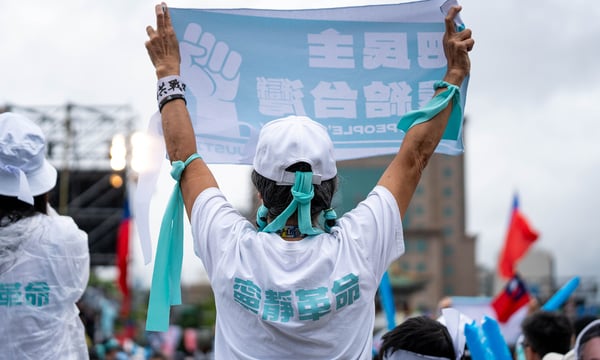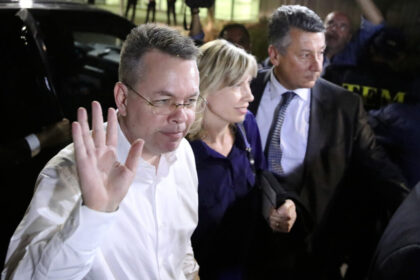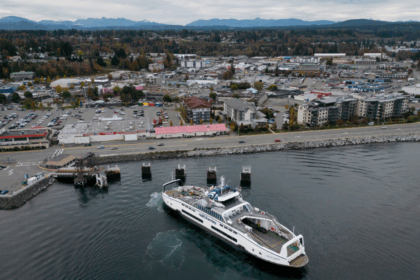The future of the Taiwan People’s Party (TPP) continues to be in question, with party leader Ko Wen-je currently in jail. It has now been more than one year since the start of Ko’s legal troubles, resulting in his detention on allegations of corruption. TPP supporters demonstrated against Ko’s detention at a rally on August 30, clashing with police.
Ko’s detention is an unusual dilemma for the TPP, which was largely formed as the vehicle for Ko’s presidential ambitions. With the TPP’s founder in detention, the party chair is currently Huang Kuo-chang, previously a leading figure of the 2014 Sunflower Movement and chair of the post-Sunflower third party, the New Power Party.
The TPP’s struggles come at a particularly contentious time in Taiwan’s domestic political scene. Earlier this year, civil society groups kicked off campaigns to recall all eligible legislators from the Kuomintang (KMT) – the first time in Taiwanese history that there was ever an attempt to recall all legislators of a political party. What became known as the “Great Recall Movement” began as a reaction to KMT efforts to drastically cut or freeze the national budget, grant the legislature new powers of investigation and prosecution, and prevent the Constitutional Court from making judgments.
The TPP sided with the KMT on all of these controversial initiatives, and campaigned against the recalls alongside the KMT. But because all of its legislators were elected on the basis of proportional representation in what is known as the party list vote, no TPP legislators faced recalls as part of the “Great Recall Movement.” Legislators elected on the basis of the party list cannot face recall; only those who are elected representatives of an electoral district.
After the “Great Recall Movement” ended abruptly with no KMT legislators being recalled, the TPP’s position should have been further strengthened. The TPP could potentially have a role to play in influencing its ally, the KMT, after the recalls. The TPP has branded itself as “white” rather than “green” or “blue,” claiming to be beyond the partisan distinctions that have long characterized Taiwanese politics. Similarly, even if allied with the KMT, the TPP sought to appeal to lighter blue voters who were less hardline on cross-strait issues.
As has often been the fate of third parties in Taiwan, the TPP faces the question of how to differentiate its political brand from that of the KMT. The NPP, the previous party led by Huang before his abrupt shift to the TPP and KMT – perceived as a betrayal by Huang’s former political allies – was ultimately doomed in the course of 2020 because of its failure to maintain a distinct identity from the Democratic Progressive Party (DPP) apart from being a smaller party. Maintaining an identity as “white” or at least “light blue,” then, will be essential for the TPP if it wishes to survive rather than be absorbed into the KMT.
Yet some indications are that the TPP wishes to continue a confrontational path with the DPP – perhaps even outflanking the KMT’s preferred approach following the recalls. A series of proposals from the TPP include attempting to shift media regulatory powers to the legislature, suggesting that DPP legislative caucus leader Ker Chien-ming face an investigation over purported threats against KMT Legislative Yuan president Han Kuo-yu, and that Premier Cho Jung-tai face an official rebuke for attempting to undermine the legislature.
If the TPP faces the danger of its identity becoming increasingly indistinct from the KMT due to how closely the two parties have aligned on controversial initiatives that spark public pushback, this brings us back to the question of Ko Wen-je. The TPP has always been distinguished from the KMT because of the centrality of party founder Ko. The TPP was originally formed by Ko in preparation for a presidential run. Even after the transition of power to Huang Kuo-chang and Ko’s jailing on corruption charges over accepting bribes in return for expanding property rights for the Core Pacific Mall, the party continues to claim that it adheres to Ko’s will. Ko’s arrest is, in the meantime, framed by party leadership as an act of political persecution by the DPP.
Even as some interpret Huang as benefiting from Ko’s continued jail stint, as he is now in control of the party, Huang continues to publicly profess loyalty to Ko. For example, the party faced a dilemma over whether to maintain a rule in the party charter that called for the swapping out of party list legislators every two years, with many of the TPP’s currently serving legislators hoping to maintain their seats. Huang said that he could not make a decision on the matter without Ko and that in Ko’s absence the party would maintain this by-law.
As for Huang’s own future as a legislator, he has announced that he intends to run for mayor of New Taipei. That is presumably how Huang intends to keep in the limelight as a politician – even if he would have to potentially outfight a KMT nominee endorsed by current mayor Hou Yu-ih for the support of the pan-Blue camp.
Still, it is to be noted that Huang’s management of the TPP’s relationship with the KMT has led to KMT chair Eric Chu denouncing Ko’s imprisonment as an act of political prosecution, even though charges against Ko actually originated from KMT city councilor Chung Hsiao-ping, and the party was initially hesitant to defend Ko.
To keep Ko in the news, the TPP has called for several changes to Taiwan’s criminal justice system. One proposal would provide for the livestreaming of trials. This is likely intended to ensure that any trial that Ko faces would be livestreamed, providing a supply of soundbites that the party could draw on as political ammunition to drum up rage. A further proposal would end pre-trial detentions on the basis of the possibility of collusion to destroy evidence. This would effectively set Ko free and allow him to continue his political career unless and until he is actually convicted of a crime.
It may not be surprising that both proposals have faced criticisms from members of the legal profession, in that ending pre-trial detention on the possibility of collusion would affect more than just Ko, and the livestreaming of trials could potentially have a chilling effect on witness and expert testimony in the future. But the two proposals gesture toward Ko’s centrality for the TPP, raising questions about the long-term viability of the party. As it does not look like Ko will be out of jail anytime soon, the party may have to contemplate its existence post-Ko.






